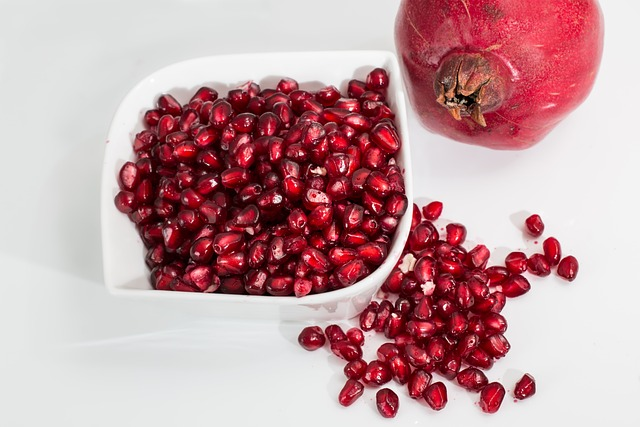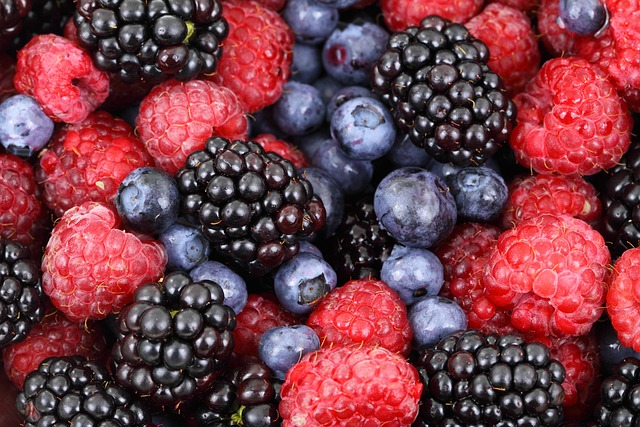
Polyphenols are a type of micronutrient found in plant-based foods. They have various health benefits, including reducing inflammation, protecting against cell damage, and improving cardiovascular health. Polyphenols can also boost cognitive function and help prevent Alzheimer's disease. Because of their many health benefits, it's important to include polyphenols in your diet. This can be done by eating plenty of fruits, vegetables, and whole grains, or by taking a polyphenol supplement.
Polyphenols are micronutrients found in plant-based foods
Polyphenols are micronutrients found in a variety of plant-based foods including fruits, vegetables, grains, chocolate and tea. They belong to a larger class of chemical compounds called 'phytochemicals', and have recently been studied for their potential health benefits due to the polyphenol-rich diets consumed by populations who traditionally enjoy good health outcomes. In particular polyphenols are known to possess antioxidant properties that protect against oxidative damage, with polyphenol rich foods such as green tea and dark chocolate promoting longevity and reducing the risk of cardiovascular disease. Therefore, polyphenols offer an exciting avenue of research for further exploration into optimal dietary intake for healthy living.
They have antioxidant and anti-inflammatory properties

Research suggests that polyphenols found in many plant foods can provide beneficial antioxidant and anti-inflammatory properties. Dietary polyphenols, including polyphenol rich diets, may provide health benefits that extend beyond their antioxidant activity. According to current research, polyphenol consumption appears to support healthy metabolic and cardiovascular functions, as well as promoting healthy aging processes. In addition to consuming polyphenols from dietary sources, polyphenol supplements can also be used to achieve the purported health benefits associated with polyphenol consumption. There is even some evidence they help reduce insulin resistance.
Health benefits of polyphenols include reduced risk of chronic diseases, such as heart disease, cancer, and stroke
Polyphenols are found in an array of plant-based foods, and evidence suggests that components of polyphenols play an important role in reducing the risk of chronic diseases, such as cardiovascular diseases, cancer and stroke. These polyphenols have been shown to improve insulin resistance and modulate the defensive response of the immune system by stimulating the beneficial gut bacteria. Additionally, polyphenols have been associated with the reduction of arteries’ thickness caused by plaque build-up which decreases blood pressure and reduces blood sugar levels - two factors that play a crucial role in increasing or decreasing the risk of heart disease. Check out our article on other heart healthy nutrients here, here, and here. Overall, polyphenol compounds show promising health benefits for preventing chronic diseases.
Dietary polyphenols can also improve cognitive function and reduce the risk of age-related dementia
Recent research has revealed health benefits of dietary polyphenols that extend beyond their antioxidant effects. Polyphenols extracted from cocoa powder and green tea in particular have been studied for their potential ability to improve cognitive function and reduce the risk of age-related dementia. Cocoa flavanols are known to beneficially influence general health and even slow down the natural process of cognitive decline as we age. Similarly, a variety of green tea polyphenols have been found to guard against neurodegenerative diseases such as Alzheimer's by scavenging free radicals throughout the brain and body. Studies have found that those who drank multiple cups of green tea per day saw significant health benefits due to higher levels of polyphenol intake. Ultimately, dietary polyphenols may be our best defense against the challenges associated with aging cognition.
Green tea, dark chocolate, red wine, berries, and olive oil are all polyphenol rich foods

Numerous scientific studies have identified green tea and dark chocolate as two foods that contain high levels of polyphenols. In green tea, the main polyphenol is epigallocatechin gallate (EGCG) which acts as a strong antioxidant and can protect against cell damage. In dark chocolate, phenolic acid is the predominant polyphenol and helps to reduce inflammation in the body. Other plant-based foods that are rich in polyphenols include red wine, berries and green olives which all contain significant amounts of beneficial compounds. Furthermore, extra virgin olive oil also contains polyphenols and should be used liberally as part of diets rich in fruits and vegetables for optimal health benefits. You know we went into a deep dive on olive oil earlier this year, you can read about it here.
To get the most health benefits from polyphenols, it is important to eat a variety of foods rich in these micronutrients
Polyphenols, phenolic acids found naturally in plant-derived foods such as red wine and a variety of other fruits and vegetables, are important functional food components that have been linked to numerous health benefits. To achieve the full potential of their disease-preventing properties, it is essential to have a diet that includes several polyphenol rich foods for optimal health. This could include items such as whole grains such as flax seeds, nuts and green tea in addition to fruits like blackberries and many other natural polyphenols found in plant foods. Eating a healthy diet with an abundance of polyphenol containing foods will ensure adequate daily intake of these beneficial compounds.

Polyphenols are micronutrients found in plant-based foods that have antioxidant and anti-inflammatory properties. They offer a variety of health benefits, including reducing the risk of chronic diseases such as heart disease, cancer, and stroke. Polyphenols can also improve cognitive function and reduce the risk of age-related dementia. To get the most health benefits from polyphenols, it is important to eat a variety of foods rich in these micronutrients. Some foods high in polyphenols include green tea, dark chocolate, red wine, berries, and olive oil. How do you plan on incorporating more polyphenols into your diet? Share your thoughts in the comments below!
This article may contain affiliate links. As always, please consult with your medical professional any time you begin a new exercise routine, or supplement, or diet.
Comments
Post a Comment